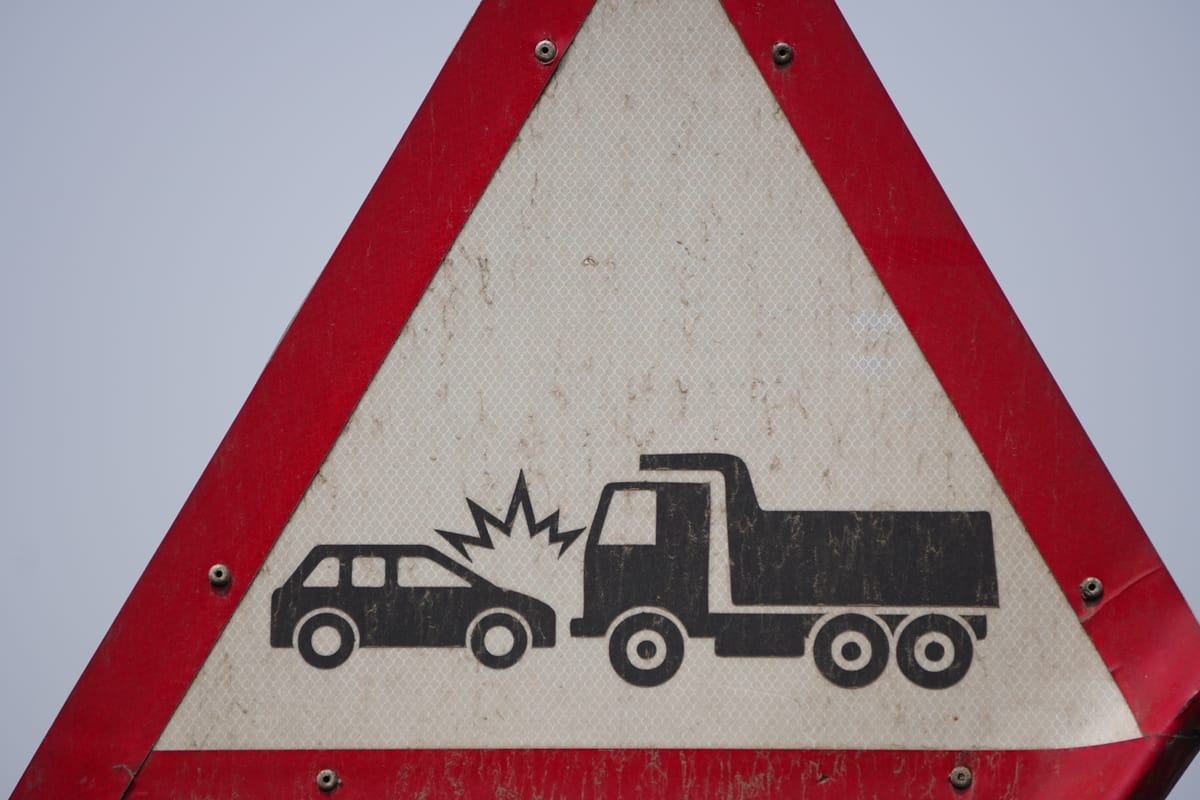Active and informed: Ensuring nuclear verdicts don't hit your business
Attorney Rick Staggard gives expert insights on nuclear verdicts

A version of this story first appeared in The Inside Lane newsletter. To get it in your inbox twice a week, sign up for free, here.
By Shefali Kapadia | The Inside Lane
Massive jury awards against trucking companies aren’t just headlines, they’re creating real pressure on carriers, especially small- and mid-sized ones. Insurance premiums are spiking, reputations are on the line, and a single verdict can threaten the future of a business.
Case in point: a $462 million award against Wabash and a $141.5 million verdict against K&N Logging. So the question is: Can any of this be prevented?
We asked Rick Staggard, attorney at Farah & Farah, what’s driving the rise in nuclear verdicts—and how carriers can protect themselves before it’s too late.
Why do nuclear verdicts and large jury awards against trucking companies appear to be rising?
Several factors. Society is more informed than ever before. I also think the increased availability of visual evidence in trucking cases, such as dashcam footage and videos taken after crashes, plays a significant role. Finally, I attribute some of the rise to the increased pressure on the trucking industry, noting the shift from brick-and-mortar stores to individual deliveries, which has led to higher employee numbers, more vehicles on the road and increased overall demand.
Can trucking executives, especially owners of small businesses, do anything to stop or prevent the trend of nuclear verdicts?
A key strategy is to prioritize the hiring of qualified drivers who are knowledgeable about FMCSA regulations and have undergone thorough background checks. It is also crucial to maintain strict internal adherence to safety protocols, including hours-of-service regulations and vehicle maintenance, to ensure that safety issues are never compromised. Drawing insights from larger companies like Werner, which operate their own driving schools and provide extensive training, can be beneficial. Additionally, executives should be actively involved in any litigation, closely monitoring the insurance company's handling of the case and, if necessary, hiring independent counsel to ensure their interests are fully protected. Finally, trucking companies should carefully select their insurance provider, prioritizing one with a strong track record of risk assessment and claims handling, rather than simply opting for the lowest premium.
How can a fleet personally ensure they are not faced with a nuclear verdict?
Smaller and medium-sized trucking companies often have an implicit mindset of relying solely on their insurance companies in the event of an accident. This can lead to less rigorous enforcement of safety regulations and lower hiring standards. However, to truly protect themselves from nuclear verdicts, these companies must be actively involved in any litigation. This means staying informed about all developments and correspondence related to the case. Since defense lawyers are typically paid by the insurance company, whose interests may not always align with those of the trucking company, it is often advisable for the company to hire its own attorney to monitor the litigation and provide reports. By taking a proactive approach and demonstrating their seriousness, trucking companies can exert more influence on settlement negotiations and put pressure on insurers to settle within policy limits. This can be achieved through a "hammer letter," which formally demands that the insurance company pay the policy limits to avoid a potentially larger verdict. Ultimately, the active involvement of the company owner or leadership in the litigation process is crucial in mitigating the risk of nuclear verdicts.
What's your No. 1 piece of advice to small trucking companies to handle rising costs related to verdicts, such as higher insurance premiums?
Be actively engaged with their insurance company and in any litigation. Many companies are not sufficiently involved, which can lead to problems. It is crucial to thoroughly document all interactions with the insurer and remain engaged throughout the process. Insurance is a necessary first step, but it's not a complete solution to risk mitigation for their small business. Still, never be captive to a single insurance provider and always shop around annually to ensure you're getting a good balance between premium, coverage and the accessibility of the policy. Companies should focus on minimizing risk to prevent accidents in the first place. When a company faces a potentially large judgment, it is essential to understand all the angles, as the insurance company may not always act in the best interest of the insured. To the insurance company, an extra $50,000 is a rounding error on the balance sheet; to a small trucking company, $50,000 is someone’s annual salary. If a case goes to trial and the verdict exceeds policy limits, the entire business could suddenly be at risk. That’s why trucking business owners need to be actively involved and consider the best risk mitigation strategy, which all starts with a solid team, solid training, adhering to regulations and never putting an unsafe truck or driver on the road.

Thanks for reading The Inside Lane! You can reach the newsletter team at editor@theinsidelane.co. We enjoy hearing from you.
Would you like to be featured in an upcoming edition? Shoot us an email.
Interested in advertising? Email us at newslettersales@mvfglobal.com
The Inside Lane is curated and written by Shefali Kapadia and edited by Bianca Prieto.





Comments ()